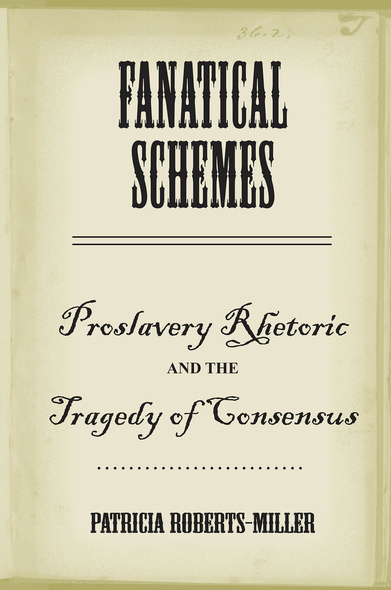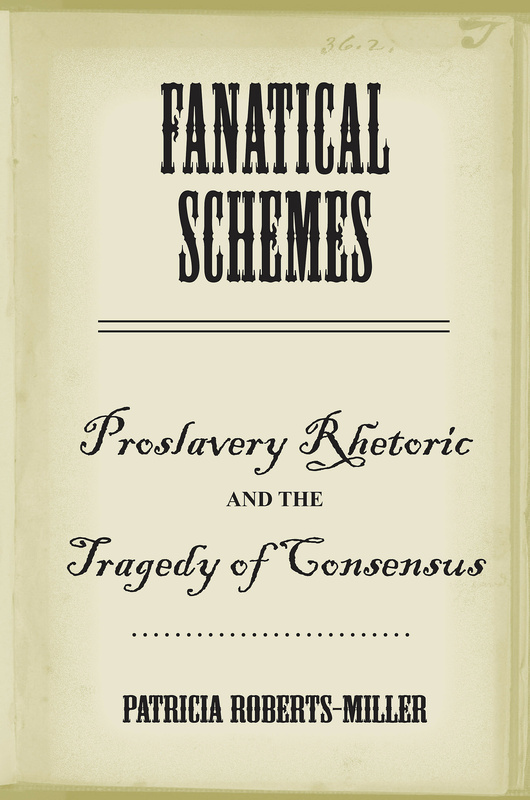Fanatical Schemes
Proslavery Rhetoric and the Tragedy of Consensus
University of Alabama Press
What was the relationship between rhetoric and slavery, and how did rhetoric fail as an alternative to violence, becoming instead its precursor?
Fanatical Schemes is a study of proslavery rhetoric in the 1830s. A common understanding of the antebellum slavery debate is that the increased stridency of abolitionists in the 1830s, particularly the abolitionist pamphlet campaign of 1835, provoked proslavery politicians into greater intransigence and inflammatory rhetoric. Patricia Roberts-Miller argues that, on the contrary, inflammatory rhetoric was inherent to proslavery ideology and predated any shift in abolitionist practices.
She examines novels, speeches, and defenses of slavery written after the pamphlet controversy to underscore the tenets of proslavery ideology and the qualities that made proslavery rhetoric effective. She also examines anti-abolitionist rhetoric in newspapers from the spring of 1835 and the history of slave codes (especially anti-literacy laws) to show that anti-abolitionism and extremist rhetoric long preceded more strident abolitionist activity in the 1830s.
The consensus that was achieved by proslavery advocates, argues Roberts-Miller, was not just about slavery, nor even simply about race. It was also about manhood, honor, authority, education, and political action. In the end, proslavery activists worked to keep the realm of public discourse from being a place in which dominant points of view could be criticized--an achievement that was, paradoxically, both a rhetorical success and a tragedy.
Roberts-Miller (rhetoric and writing, Univ. of Texas, Austin) presents incisive critical analyses, firmly based in theory, of the communication of southern proslavery rhetors during the 30 years prior to the Civil War. She provides extensive examples of a variety of forms of communication to support her conclusion that the South became trapped in its own extremist rhetoric. Systematic suppression of any discussion of slavery both in the South and, thanks to gag rules, in Congress magnified the difficulty; as a result, decisions were made without deliberation. The author points out that an underlying feeling of moral ambiguity about slavery may have led to the alarmist, hyperbolic, and irrational pronouncements about (nonexistent) threats to the 'Southern way of life.' And she even suggests that the mind-set produced by these excesses led to secession and the Civil War. Rational thought would have led to the conclusion that Lincoln was a weak, lame-duck president, with little support in Congress, who could be ignored for four years. The book includes extensive in-text annotation and substantive endnotes. Summing Up: Highly recommended. Upper-division undergraduates through faculty; general readers.'
—CHOICE
'Fanatical Schemes makes a vital contribution to rhetoric studies. This book will certainly change how rhetoric scholars and Americanists look at abolition as a cultural and rhetorical movement. The command that Roberts-Miller has over this material is authoritative and absolutely convincing.'
--Nan Johnson, Professor of English, The Ohio State University
Patricia Roberts-Miller is the author of Voices in the Wilderness: Public Discourse and the Paradox of Puritan Rhetoric and Deliberate Conflict: Argument, Political Theory, and Composition Classes.






